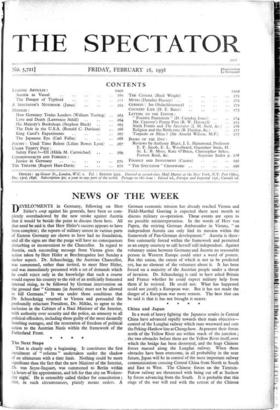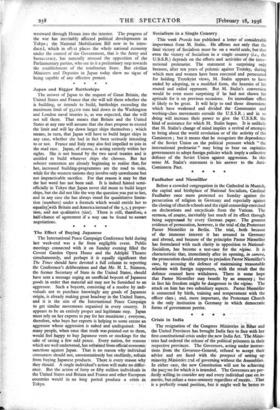China and Japan In a week of heavy fighting the
Japanese armies in Central China have advanced rapidly towards their main objective— control of the Lunghai railway which runs westward and cuts the Peking-Hankow line at Chengchow. At present their forces north of the Yellow River are within reach of the junction ; the two obstacles before them are the Yellow River itself, over which the bridge has been destroyed, and the huge Chinese forces massed along the Lunghai railway. When these obstacles have been overcome, in all probability in the near future, japan will be in control of the most important railway communications crossing Central China from North to South and East to West. The Chinese forces on the Tientsin- Pukow railway are threatened with being cut off at Suchow by forces advancing from the South. It is probable that this stage of the war will end with the retreat of the Chinese westward through Honan into the interior. The progress of the war has inevitably affected political developments in Tokyo ; the National Mobilisation Bill now to be intro- ducel, which in effi ct places the whole national economy under the control of the Government, that is the Army and bureaucracy, has naturally aroused the opposition of the Parliamentary parties, who see in it a preliminary step towards the establishment of the totalitarian State. But civilian Ministers and Deputies in Japan today show no signs of being capable of any effective protest.
* * * *











































